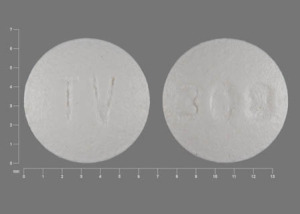Hydroxyzine Interactions
There are 584 drugs known to interact with hydroxyzine, along with 9 disease interactions, and 1 alcohol/food interaction. Of the total drug interactions, 94 are major, 486 are moderate, and 4 are minor.
- View all 584 medications that may interact with hydroxyzine
- View hydroxyzine alcohol/food interactions (1)
- View hydroxyzine disease interactions (9)
Most frequently checked interactions
View interaction reports for hydroxyzine and the medicines listed below.
- Abilify (aripiprazole)
- Adderall (amphetamine / dextroamphetamine)
- Adderall XR (amphetamine / dextroamphetamine)
- Ambien (zolpidem)
- Benadryl (diphenhydramine)
- BuSpar (buspirone)
- Cymbalta (duloxetine)
- Fish Oil (omega-3 polyunsaturated fatty acids)
- Flexeril (cyclobenzaprine)
- Flonase (fluticasone nasal)
- Klonopin (clonazepam)
- Lamictal (lamotrigine)
- Lexapro (escitalopram)
- Lyrica (pregabalin)
- Metoprolol Succinate ER (metoprolol)
- Prozac (fluoxetine)
- Seroquel (quetiapine)
- Singulair (montelukast)
- Tylenol (acetaminophen)
- Vitamin B12 (cyanocobalamin)
- Vitamin C (ascorbic acid)
- Vitamin D2 (ergocalciferol)
- Vitamin D3 (cholecalciferol)
- Vyvanse (lisdexamfetamine)
- Wellbutrin (bupropion)
- Wellbutrin XL (bupropion)
- Xanax (alprazolam)
- Zofran (ondansetron)
- Zoloft (sertraline)
- Zyrtec (cetirizine)
Hydroxyzine alcohol/food interactions
There is 1 alcohol/food interaction with hydroxyzine.
Hydroxyzine disease interactions
There are 9 disease interactions with hydroxyzine which include:
- depression
- QT prolongation
- anticholinergic effects
- asthma/COPD
- cardiovascular
- renal/liver disease
- glaucoma
- liver disease
- renal/liver disease
More about hydroxyzine
- hydroxyzine consumer information
- Compare alternatives
- Pricing & coupons
- Reviews (1,415)
- Drug images
- Side effects
- Dosage information
- Patient tips
- During pregnancy
- Support group
- Drug class: antihistamines
- Breastfeeding
- En español
Related treatment guides
Drug Interaction Classification
| Highly clinically significant. Avoid combinations; the risk of the interaction outweighs the benefit. | |
| Moderately clinically significant. Usually avoid combinations; use it only under special circumstances. | |
| Minimally clinically significant. Minimize risk; assess risk and consider an alternative drug, take steps to circumvent the interaction risk and/or institute a monitoring plan. | |
| No interaction information available. |
See also:
Further information
Always consult your healthcare provider to ensure the information displayed on this page applies to your personal circumstances.


